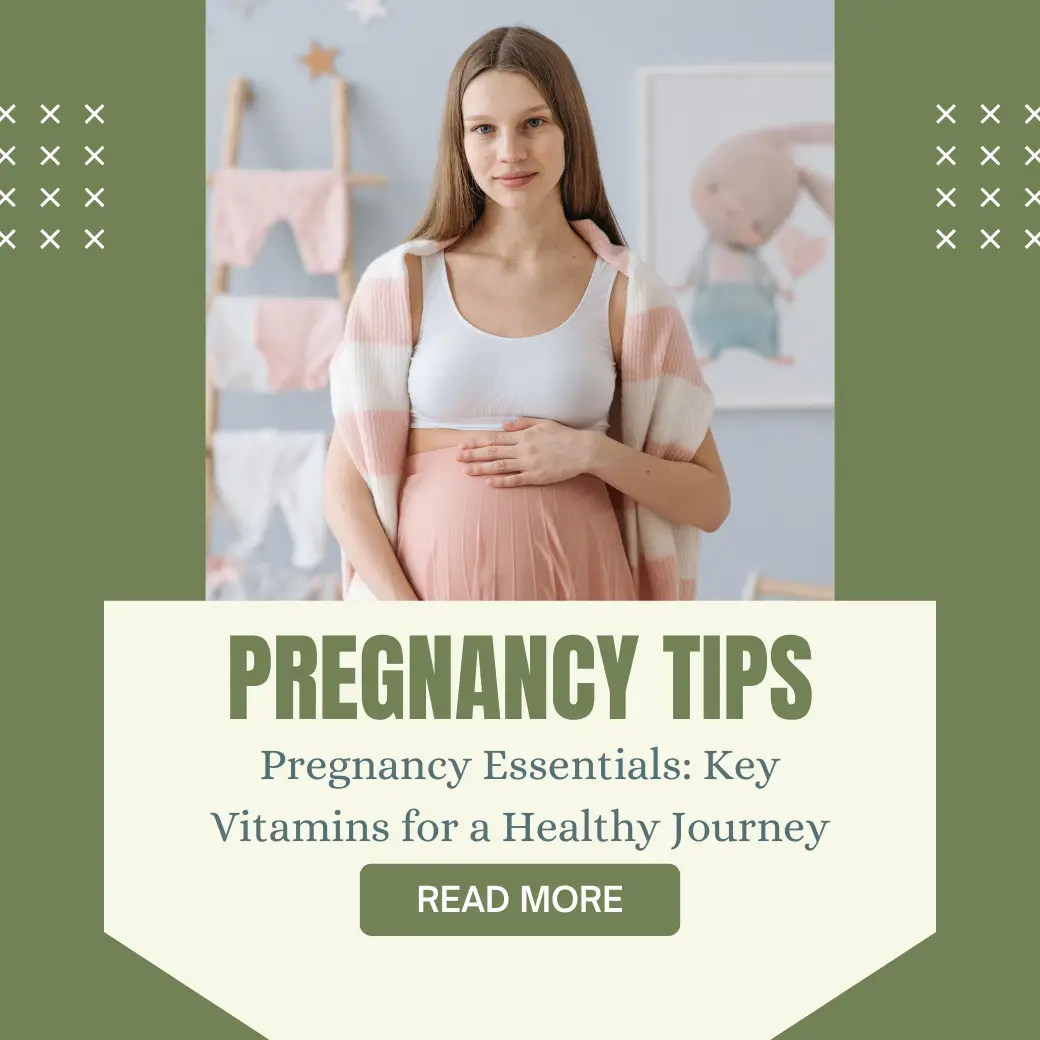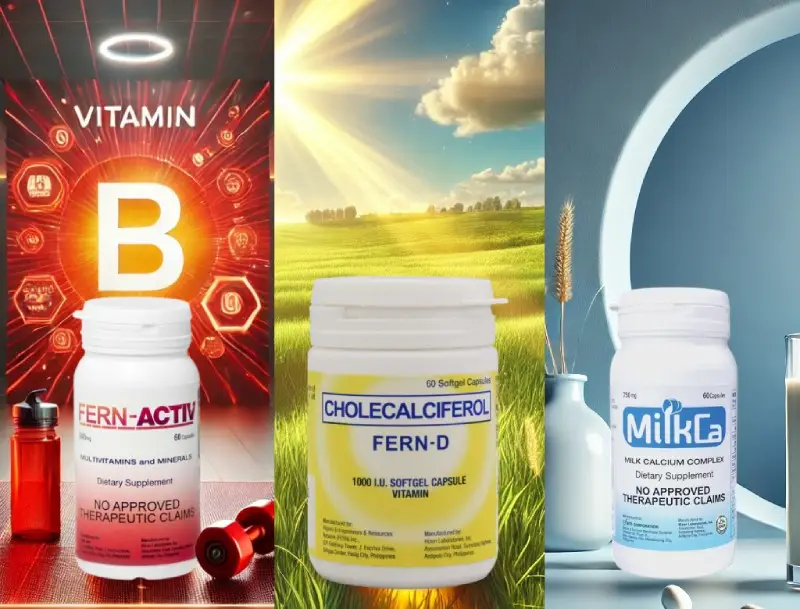The Importance of Vitamin D for Ovarian Reserve
When you think of sunshine, you probably picture warm beaches or lazy afternoons outdoors. But did you know the sunshine vitamin—Vitamin D—also plays a major role in fertility? Specifically, it supports something called your ovarian reserve, which is all about egg health and quantity. If you’re on a journey to conceive or simply want to maintain your reproductive health, understanding this connection can make a world of difference. Let’s dive in and brighten your knowledge!
What is Ovarian Reserve and Why Does it Matter?
Your ovarian reserve is like a savings account for your fertility. It refers to the number and quality of eggs you have. This reserve naturally decreases with age, but lifestyle, health, and nutritional factors can also affect it. That’s where Vitamin D steps in to help.
Studies suggest that Vitamin D plays a role in follicle development—the process that helps mature your eggs for ovulation. Without enough Vitamin D, this process can slow down, potentially impacting your ovarian reserve. Think of it as providing the sunshine your eggs need to thrive! And the best part? Boosting your Vitamin D levels is simple, effective, and has benefits beyond just fertility.
How Does Vitamin D Support Your Eggs?
Vitamin D is like the multitasking friend who makes everything better. For your ovarian reserve, it helps in several key ways:
- Hormonal Balance
Vitamin D works closely with hormones like estrogen and progesterone, which are crucial for ovulation and egg maturation. Balanced hormones mean a better chance of releasing healthy eggs, so your ovarian reserve stays strong. - Improved Egg Quality
Your eggs are sensitive to oxidative stress—damage caused by free radicals. Vitamin D, with its antioxidant properties, helps protect your eggs, keeping them healthier for longer. Think of it as a protective umbrella against the “rain” of stress on your ovarian reserve. - Reproductive Cell Communication
Your ovaries and eggs rely on signals to work efficiently. Vitamin D enhances this cellular communication, ensuring your reproductive system runs smoothly and supports egg production.
How to Know if You’re Getting Enough Vitamin D
Here’s the thing—many people are Vitamin D deficient, and they don’t even realize it. If you spend most of your time indoors or live in a place with limited sunlight, your levels might be low. While soaking up the sun is one way to get Vitamin D, dietary sources and supplements are often more reliable and consistent.
Foods like fatty fish, egg yolks, and fortified milk contain Vitamin D, but let’s be honest—it’s hard to get enough through diet alone. That’s why a good Vitamin D supplement, like Fern-D, can be a game-changer for your ovarian reserve and overall health.
Tips to Keep Your Ovarian Reserve Healthy
Now that you know how vital Vitamin D is, let’s talk about practical steps to optimize your levels and care for your ovarian reserve:
- Spend Time in the Sun: Aim for 10–15 minutes of sunlight daily on your skin without sunscreen. Just don’t overdo it!
- Add Vitamin D-Rich Foods to Your Plate: Think salmon, mushrooms, and fortified cereals—delicious and fertility-friendly.
- Consider Supplements: A high-quality Vitamin D3 supplement can ensure you hit your daily needs, especially during winter or cloudy days.
- Stay Active: Exercise improves blood flow to your ovaries, enhancing nutrient delivery, including Vitamin D.
It’s Never Too Early to Start
Whether you’re planning to grow your family soon or just want to take care of your reproductive health, prioritizing Vitamin D is always a good idea. Healthy ovarian reserve equals better fertility potential, but it also contributes to overall hormonal and bone health. It’s like a win-win for your entire body!
So, let Vitamin D light the way for your fertility journey. With simple lifestyle changes and a focus on this crucial vitamin, you can take proactive steps toward protecting your ovarian reserve. After all, a little sunshine—inside and out—goes a long way!
Folate vs. Folic Acid: What’s Better?
When it comes to vitamins, the terms folate and folic acid are often thrown around like they’re the same thing. But are they? Spoiler alert: not quite. These two forms of vitamin B9 have key differences, and knowing them could seriously improve your health game. So, let’s clear up the confusion and find out which one’s better for you!
What Exactly Are Folate and Folic Acid?
First, let’s break it down. Folate is the natural form of vitamin B9 found in foods like leafy greens, citrus fruits, and beans. It’s an essential nutrient that helps your body make DNA, form healthy red blood cells, and support cell growth—especially important during pregnancy.
Folic acid, on the other hand, is the synthetic version of B9. You’ll find it in fortified foods (like breakfast cereals and bread) and supplements. While it serves the same purpose as folate, your body processes it differently. It’s kind of like comparing fresh-squeezed orange juice to powdered drink mix—similar but not identical.
How Does Your Body Process Them?
This is where things get interesting. Folate is ready-to-go when you eat it—your body absorbs and uses it efficiently. Folic acid, however, needs to be converted into an active form called methylfolate before your body can use it.
For most people, this conversion happens just fine. But here’s the kicker: up to 60% of people have a genetic variation that makes this process less effective. If you’re one of them, folic acid may not provide the full benefits you need, and unconverted folic acid can even build up in your bloodstream. Yikes!
Folate, on the other hand, doesn’t require this conversion step. It’s like skipping the line at the coffee shop—faster, easier, and way more efficient.
Which One is Better for Fertility?
If you’re planning for a baby, this question is super important. Folate and folic acid both play crucial roles in preventing neural tube defects in developing babies. This is why healthcare providers recommend taking a prenatal vitamin with vitamin B9.
However, many experts now recommend methylfolate, the active form of folate, over folic acid. Why? Because it works for everyone, including those with that pesky genetic variation. If you want to cover all your bases, choosing a supplement with methylfolate ensures your body gets what it needs without the extra processing step.
Plus, folate from natural sources or supplements is less likely to cause build-up in your system. It’s like giving your body exactly what it asked for—no extra baggage.
What About Everyday Health?
Even if babies aren’t in your immediate future, vitamin B9 is still a big deal. It supports energy production, heart health, and even brain function. Folate from natural food sources is always a great choice because you get additional nutrients along the way. Think spinach salads, avocados, and oranges—yum!
If your diet isn’t packed with folate-rich foods, a supplement with methylfolate can bridge the gap. It’s especially important if you’re taking medications, like antacids or certain pain relievers, which can lower your natural folate levels.
Folic acid in fortified foods can be a convenient backup, but remember: it’s not as bioavailable as folate or methylfolate. For top-notch health benefits, stick with the real deal whenever you can.
So, What’s the Verdict?
If you’re choosing between folate and folic acid, folate comes out on top for its ease of use by your body. Natural sources like leafy greens are gold, and supplements with methylfolate give you an added safety net.
Folic acid is still beneficial, especially if you’re eating fortified foods, but it’s not quite as efficient. If you have that genetic variation or want the most bioavailable option, folate is the way to go.
Quick Tips to Boost Your Vitamin B9
- Eat More Greens: Spinach, kale, and broccoli are folate powerhouses that pack a punch of other nutrients too.
- Snack Smart: Oranges and avocados are easy ways to sneak in extra folate throughout the day.
- Choose Methylfolate: Look for this on supplement labels if you want the most effective form of B9 for your body.
- Get Tested: Ask your doctor about checking for the genetic variation that affects folic acid metabolism—it’s good to know!
The Bottom Line
Folate and folic acid might seem like twins, but they’re more like distant cousins. Folate is the natural, easy-to-absorb option that keeps your body running smoothly, while folic acid needs extra steps to work its magic.
For fertility, pregnancy, or just feeling your best, folate-rich foods and methylfolate supplements are the MVPs. So next time you’re thinking about your health, remember: a little folate goes a long way!

Antioxidants for Age-Related Fertility Challenges
As you age, your body goes through natural changes, and fertility is no exception. But don’t worry—there’s good news! Antioxidants can be your secret weapon in tackling age-related fertility challenges. These mighty nutrients work behind the scenes, protecting your cells, including eggs and sperm, from damage caused by oxidative stress. Let’s dive into how antioxidants can help you on your fertility journey.
Understanding Oxidative Stress and Fertility
Before we get to the good stuff, let’s talk about oxidative stress. It happens when there’s an imbalance between free radicals (unstable molecules) and antioxidants in your body. Think of free radicals as little troublemakers causing wear and tear on your cells, including the precious ones involved in reproduction.
As you age, your body becomes more prone to oxidative stress, which can impact egg quality, sperm health, and overall fertility. It’s like your cells need a bit more TLC than they used to. That’s where antioxidants step in to save the day! They neutralize free radicals, protect your cells, and create a healthier environment for conception.
Top Antioxidants for Fertility: Your Allies in Aging Gracefully
Certain antioxidants are especially beneficial when it comes to age-related fertility challenges. Here are the all-stars you’ll want in your corner:
- Vitamin C
This powerhouse antioxidant protects your reproductive cells from damage and boosts overall immune health. It also improves sperm quality and helps maintain healthy hormone levels in women. Think of it as a multi-tasker that keeps everything running smoothly. - Vitamin E
Vitamin E is like a bodyguard for your eggs and sperm. It improves their quality and enhances their ability to thrive. Plus, it’s great for supporting the uterine lining, making it a favorite for women on their fertility journey. - Coenzyme Q10 (CoQ10)
Your eggs and sperm need energy to function properly, and CoQ10 is here to deliver! This antioxidant supports energy production in cells and helps improve egg quality, even in your late 30s and beyond. - Zinc and Selenium
These trace minerals might not get as much attention, but they’re fertility superheroes. Zinc supports healthy ovulation, while selenium plays a critical role in protecting sperm and egg cells from oxidative damage.
How Antioxidants Can Boost Egg and Sperm Health
You might be wondering, How exactly do antioxidants help my eggs and sperm? The answer lies in their ability to protect and repair. Over time, exposure to environmental toxins, stress, and even the natural aging process can chip away at the quality of your reproductive cells. Antioxidants act like a shield, guarding against these attacks.
For women, antioxidants can enhance egg quality, ensuring they’re healthy and ready for fertilization. For men, they improve sperm count, motility, and overall quality. In other words, antioxidants help both sides of the fertility equation, giving you and your partner the best shot at success.
Foods Rich in Antioxidants: Your Fertility Supermarket List
The best part? You can load up on antioxidants simply by eating delicious, colorful foods. Here’s a quick list to get you started:
- Berries: Blueberries, strawberries, and raspberries are antioxidant-packed and perfect for snacking.
- Leafy Greens: Spinach, kale, and Swiss chard are not only great for fertility but also boost overall health.
- Nuts and Seeds: Almonds, sunflower seeds, and walnuts are rich in Vitamin E and make for a satisfying crunch.
- Citrus Fruits: Oranges, lemons, and grapefruits are bursting with Vitamin C to keep your cells healthy.
- Fish: Salmon and mackerel are excellent sources of selenium and omega-3s, both of which support reproductive health.
Tips for Adding Antioxidants to Your Routine
Now that you know the benefits, let’s make it easy to incorporate antioxidants into your life:
- Start Your Day with a Smoothie: Blend spinach, berries, and a splash of orange juice for a refreshing, antioxidant-rich breakfast.
- Snack Smart: Keep nuts and dark chocolate (yes, it’s loaded with antioxidants!) on hand for quick, healthy snacks.
- Choose Supplements Wisely: If you’re not getting enough antioxidants from food, consider taking a high-quality supplement with your doctor’s guidance.
Antioxidants: Small Changes, Big Results
Adding antioxidants to your diet and routine might seem like a small step, but the impact can be huge. By reducing oxidative stress, you’re giving your body the tools it needs to tackle age-related fertility challenges head-on. Whether you’re preparing for pregnancy now or thinking about it in the future, antioxidants can help set the stage for success.
So, stock up on those berries, sprinkle some seeds on your salad, and embrace the power of antioxidants. Your future self—and your fertility—will thank you!
Preparing Your Body with Preconception Supplements
Deciding to grow your family is an exciting journey, but preparing your body for the process is just as important. While a healthy diet and lifestyle play a big role, preconception supplements are like your body’s secret helpers, giving you a head start. Let’s explore how these tiny powerhouses can make a big difference as you prepare for this beautiful chapter.
Why Preconception Health Matters
Think of your body as the home where your baby will grow—it needs a strong foundation. Preconception health isn’t just about ensuring you’re fertile; it’s about creating the healthiest environment possible for your future baby. Taking the right supplements fills in any nutritional gaps, ensuring your body has everything it needs to thrive during pregnancy and reduce the risk of complications, including miscarriage.
Even with the best intentions, it’s tough to get all the necessary nutrients from food alone. Busy schedules, food cravings, and even certain dietary restrictions can leave your body lacking. Preconception supplements ensure you’re covered, giving you peace of mind and setting you up for success.
Key Nutrients to Prioritize
There’s a lot of buzz about preconception supplements, but which ones do you actually need? Here’s a quick breakdown of the must-haves:
- Folate or Folic Acid
This is a non-negotiable when preparing for pregnancy. Folate supports healthy cell division and reduces the risk of neural tube defects in your baby. Whether you’re planning or just hoping, start taking folate early—it’s a game-changer for early development. - Vitamin D
Vitamin D is essential for hormone regulation and helps improve fertility. It also supports your immune system, strengthens your bones, and plays a role in preventing pregnancy complications that could lead to miscarriage. - Calcium, Magnesium, and Phosphorus
These three minerals are critical for both preconception and pregnancy. Adequate calcium levels help regulate blood pressure and reduce the risk of pregnancy-related hypertension—a condition linked to miscarriage. Calcium also supports the healthy development of the placenta, ensuring your baby gets the nutrients and oxygen needed for growth.Magnesium works hand-in-hand with calcium to relax uterine muscles and reduce the risk of early contractions, while phosphorus ensures proper cell function and energy production. Together, these nutrients help create a stable and supportive environment, significantly reducing the likelihood of pregnancy loss.
How Preconception Supplements Boost Fertility and Reduce Miscarriage Risk
Preconception supplements do more than prepare your body for pregnancy—they can directly impact fertility and lower miscarriage risk. For example:
- Folate encourages healthy ovulation and proper cell division, reducing genetic issues that may lead to pregnancy loss.
- Calcium strengthens the placenta, lowers the risk of complications, and ensures your body can meet the demands of pregnancy.
- Vitamin D improves egg quality and reduces inflammation, which is crucial for implantation and maintaining a healthy pregnancy.
- Magnesium supports hormonal balance and prevents early uterine contractions, helping to sustain a pregnancy through its critical early stages.
Taking the right supplements helps your body function optimally and provides the support needed to carry a pregnancy to term.
When Should You Start Taking Preconception Supplements?
The earlier, the better! Experts recommend starting preconception supplements at least three months before trying to conceive. This gives your body enough time to build up nutrient stores and prepare for pregnancy. Even if you’re not planning to conceive right away, it’s never too early to give your body a head start.
If you’re wondering which supplements to take, consult with your healthcare provider. They can guide you on the right dosage and ensure you’re taking what’s best for your unique needs.

Making Preconception Supplements Part of Your Routine
Incorporating supplements into your daily routine doesn’t have to feel like a chore. Here are a few tips to make it easier:
- Set a Reminder: Use your phone or a sticky note on your fridge to remind you to take your supplements daily.
- Keep Them Visible: Place them next to your toothbrush or coffee maker—somewhere you’ll see them every morning.
- Pair Them with Meals: Many supplements are easier to absorb with food, so take them during breakfast or dinner.
- Choose Quality Brands: Invest in high-quality supplements that are third-party tested and free from unnecessary fillers.
The Big Picture: Preparing Your Body with Love
Taking preconception supplements isn’t just about popping pills—it’s an act of love and preparation for your future baby. You’re giving your body the best possible start, ensuring it has the nutrients it needs to support fertility, prevent miscarriage, and nurture your pregnancy journey.




